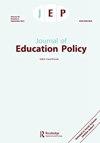“我现在受够了。芬兰学术界的疏离感
IF 3
2区 教育学
Q1 EDUCATION & EDUCATIONAL RESEARCH
引用次数: 4
摘要
高等教育的商业化和商品化在学术文献中受到了广泛的批评。学术职业的相对特权似乎在下降,因为大学承受着越来越大的竞争压力——这些机构把压力传递给了学者。学者们对自己的工作环境失去了控制,高内在动机和目标被外在动机所烙印。从异化理论的角度来看这些最近的发展,我们可能会说,学者们感到一种深深的被剥夺了权力的感觉,这不仅不利于学术工作,也不利于传统的学术身份。这一理论方法是在芬兰大学合并的背景下讨论的——坦佩雷理工大学(TUT)和坦佩雷大学(UTA)合并为坦佩雷大学(2019年)——这表明了被外部控制的经历,导致了脱离接触和异化的经历。异化的原因通常被放在高等教育政策和高等教育机构的层面上,但不是统一的,这就是为什么复数形式-异化-被认为更合适。本文章由计算机程序翻译,如有差异,请以英文原文为准。
‘I am done with that now.’ Sense of alienations in Finnish academia
ABSTRACT Commercialization and commodification of higher education has been subjected to wide critique in academic literature. The relative privilege of academic professions seems to be on the decline, as universities are subjected to increasing competitive pressures – pressures which these institutions pass on to academics. Academics experience a loss of control over their own working conditions, with high intrinsic motivation and goals being imprinted by extrinsic ones. Looking at these recent developments through the lens of alienation theory, it is possible to argue that academics feel a deep sense of disempowerment, which is counterproductive not only for academic work, but also traditional academic identities. This theoretical approach is discussed in the context of a Finnish university merger – the Tampere University of Technology (TUT) and the University of Tampere (UTA) merging into Tampere University (2019) – which shows experiences of being extraneously controlled, leading to experiences of disengagement and alienation. The causes of alienation are typically placed on the level of higher education policy and higher education institutions, but are not uniform, which is why the plural form – alienations – is considered more apt.
求助全文
通过发布文献求助,成功后即可免费获取论文全文。
去求助
来源期刊

Journal of Education Policy
EDUCATION & EDUCATIONAL RESEARCH-
CiteScore
8.10
自引率
8.00%
发文量
25
期刊介绍:
The Journal of Education Policy publishes original, critically and theoretically informed research that discusses, analyses and debates policymaking, policy implementation and the impact of policy at all levels and in all facets of formal and informal education. The journal is interested in analysis and theorisation of policy that is transposable, that has generic interest and relevance - national policy case studies would need to be conceptually and/or methodologically generalisable. The journal also publishes work that presents new methods of research and research studies that are experimental and innovative. The journal offers a forum for theoretical debate, as well as historical, philosophical and comparative studies, across different countries, contexts and levels of education. A valuable resource for academics, researchers, educators and policy makers, Journal of Education Policy provides rigorous and original insights into educational policy development, implications and global impact.
 求助内容:
求助内容: 应助结果提醒方式:
应助结果提醒方式:


